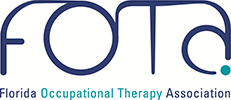Empowering students in fieldwork: Building emotional intelligence skills through self-assessment
Empowering students in fieldwork: Building emotional intelligence skills through self-assessment
Lucerito R. Gonzalez, COTA/L, MSOTS
Navigating the vast and intricate landscape of healthcare extends far beyond academic proficiency—it necessitates a profound grasp of human emotions, social interactions, and the nuances of non-verbal communication. For occupational therapy assistant (OTA) students preparing to step into professional roles within clinical settings, the prominence of emotional intelligence (EI) becomes increasingly evident.
The capacity to understand and regulate emotions, both within oneself and others, serves as a cornerstone for fostering effective communication, collaboration, and ultimately, delivering exceptional patient care (Perkins & Schmid, 2019). Recognizing the foundational importance of EI, particularly among future OTA professionals, stands as a catalyst in shaping a well-rounded and competent clinician prepared to tackle the inherent challenges of the world of healthcare. This article delves into the significance of EI among college students transitioning into the demanding yet rewarding realm of the occupational therapy (OT) profession. Its aim is to provoke contemplation and equip students with tools not only to comprehend, but actively cultivate and reinforce student EI; thus, empowering them for a successful clinical experience.
Socrates' famous injunction, "know thyself," resonates as a call for intentional self-reflection, encouraging students to identify their strengths and limitations. For students transitioning from academics to clinical practice this self-awareness becomes a powerful tool. Understanding the fundamental skills and areas needing improvement empowers students. Actively working on areas requiring growth creates a sense of confidence in their clinical performance. Emotional regulation plays a crucial role in this process, enabling students to be open to feedback and constructive criticism. EI also involves recognizing the importance of asking pertinent questions and leveraging specific clinical challenges as opportunities for optimal learning (Herschberg, 2021). This receptiveness fosters a sense of teachability, enhancing their ability to learn and grow within the clinical setting.
In preparation for clinicals, one effective approach involves providing students with the opportunity to engage in an EI or emotional quotient survey or questionnaire. This self-assessment can serve as a foundational step to identify functional strategies within student’s lives and create meaningful goals aimed at strengthening weaker areas of their EI. Incorporating this process into the self-reflective portion of their pre-clinical portfolio allows students to monitor and report on their own progress. They can track their development by revisiting these goals at designated checkpoints, such as midterm and post-clinical debriefings. Integrating these tools into student learning journey not only fosters self-awareness, but also cultivates habituation and self-improvement which proves essential for student growth as competent and empathetic OTA (Perkins & Schmid, 2019).
When embracing EI throughout the student journey and incorporating provisions of intentional training in self-reflection, a fundamental cornerstone for success is established. This foundation proves invaluable as students transition into the practical realm of OT practice. It empowers them to navigate challenges seamlessly during clinical rotations and equips them for a successful licensing process. This mindful approach of combining EI and intentional self-reflection not only enhances their clinical experiences but also fortifies their ability to adapt and excel in the diverse and demanding landscape of OT practice.
References
Herschberg, M. A. (2021). The career toolkit: Essential skills for success that no one taught you
(1st ed.). Cognosco Media LLC.
Perkins, N. A., & Schmid, A. A. (2019). Increasing emotional intelligence through self-reflection journals: Implications for occupational therapy students as emerging clinicians. Journal of Occupational Therapy Education, 3(3). https://doi.org/10.26681/jote.2019.030305
